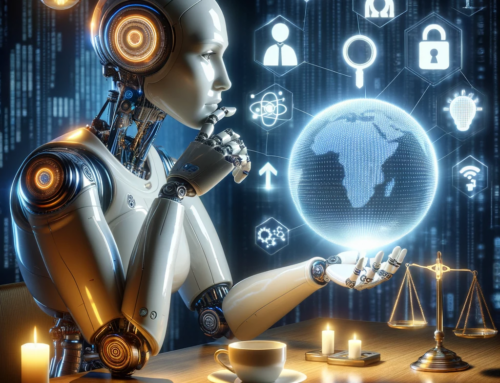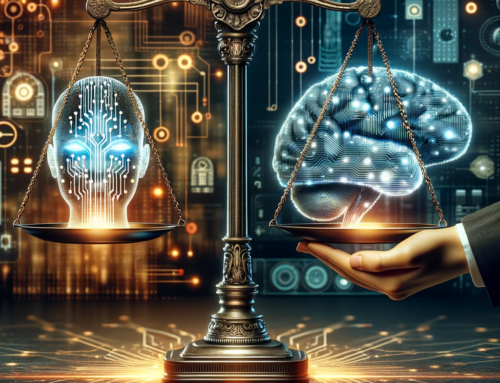In the realm of technological advancement, artificial intelligence (AI) has emerged as a beacon of progress, transforming the way decisions are made in various organizational processes. Its integration into the fabric of businesses and society has been both rapid and profound. However, this integration raises critical questions about the ethical implications and the balance that needs to be struck between embracing technological progress and maintaining ethical standards.
The Rise of Automated Decision-Making
AI technologies have evolved to make complex decisions, often at a speed and accuracy that surpass human capabilities. From hiring processes and financial lending to medical diagnostics and customer service, AI’s scope is vast and diverse. In many cases, these automated decisions lead to increased efficiency, reduced costs, and even greater objectivity in processes traditionally prone to human bias.
The Ethical Quandary
However, the very power that makes AI so valuable also raises significant ethical concerns. One of the primary issues is the opacity of AI decision-making processes. Often, the rationale behind an AI’s decision is not transparent, making it difficult for those affected by these decisions to understand or challenge them. This lack of transparency can be especially troubling when AI systems inadvertently perpetuate biases present in their training data, leading to unfair or discriminatory outcomes.
Moreover, the rapid adoption of AI in decision-making processes tends to disproportionately affect the more vulnerable segments of the workforce and society. For example, automated systems used in hiring can inadvertently filter out candidates from certain backgrounds if not properly monitored and adjusted.
Beyond Technical Fixes
Addressing these challenges goes beyond just technical solutions. It requires a holistic approach that encompasses organizational practices, managerial ethics, and societal accountability. Organizations need to adopt a framework that not only embraces AI for its efficiency and capabilities but also critically examines and mitigates the potential harm it can cause.
This involves implementing transparent AI systems where the logic and reasoning are understandable and explainable to its users. Managers and decision-makers need to be aware of the ethical implications of using AI and should be equipped to take responsibility for the outcomes of these systems.
Ensuring Accountability
On a broader scale, societal systems need to be in place to ensure the accountability of AI systems. This could involve regulatory frameworks that mandate transparency and fairness in AI systems and provide avenues for redress for those adversely affected by automated decisions.
Moreover, there’s a growing need for interdisciplinary collaboration – involving technologists, ethicists, legal experts, and policymakers – to address the ethical challenges posed by AI. Such collaboration can lead to the development of AI systems that not only advance organizational goals but also respect and uphold ethical standards and social equity.
Conclusion
As AI continues to evolve and permeate more aspects of our professional and personal lives, the balance between harnessing its potential and upholding ethical standards becomes increasingly crucial. The future of AI in decision-making is not just a story of technological prowess but also one of responsibility, ethics, and a commitment to societal well-being. As we stride forward in this AI-driven era, let us ensure that progress does not come at the cost of our ethical values and principles.


